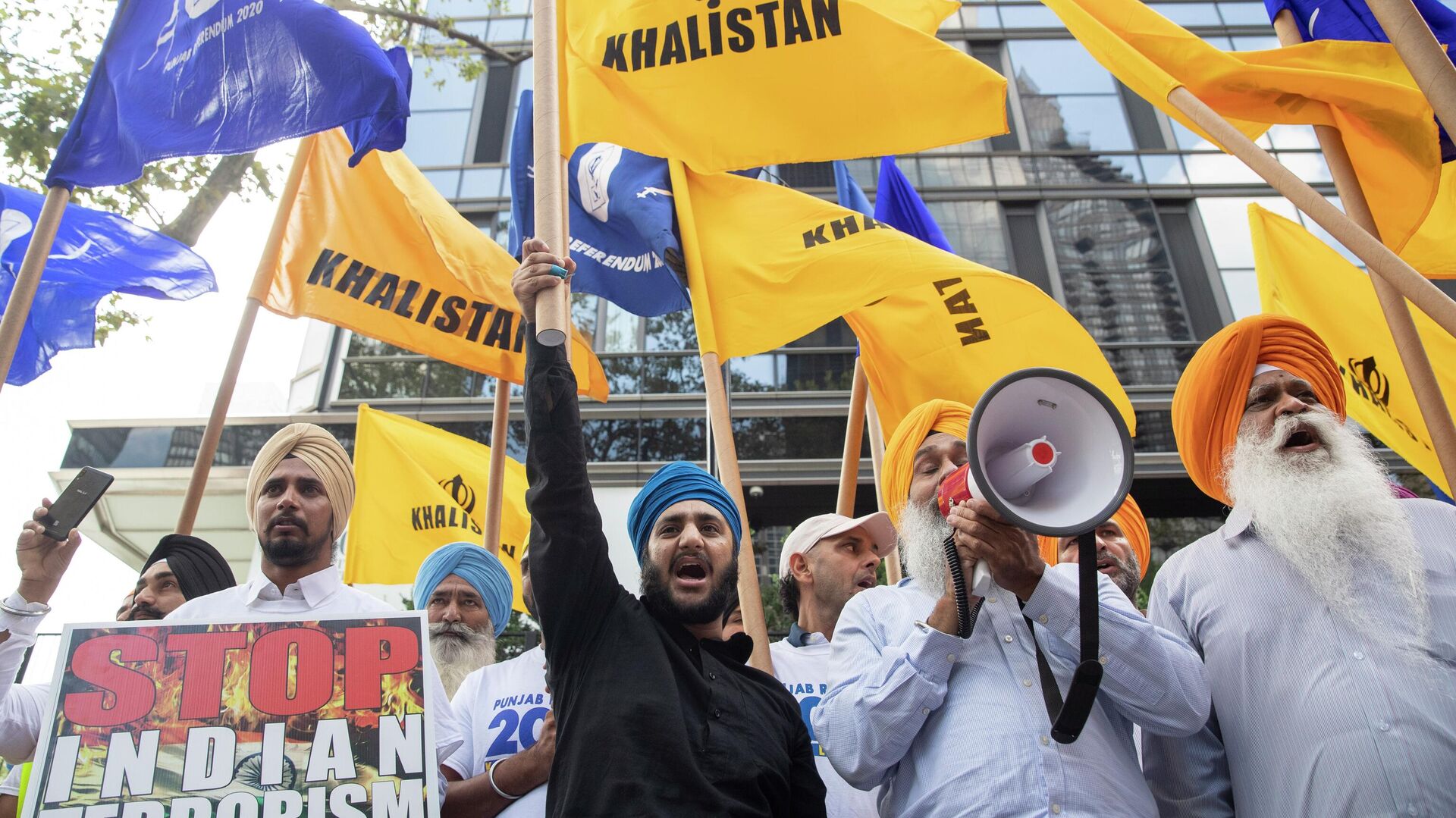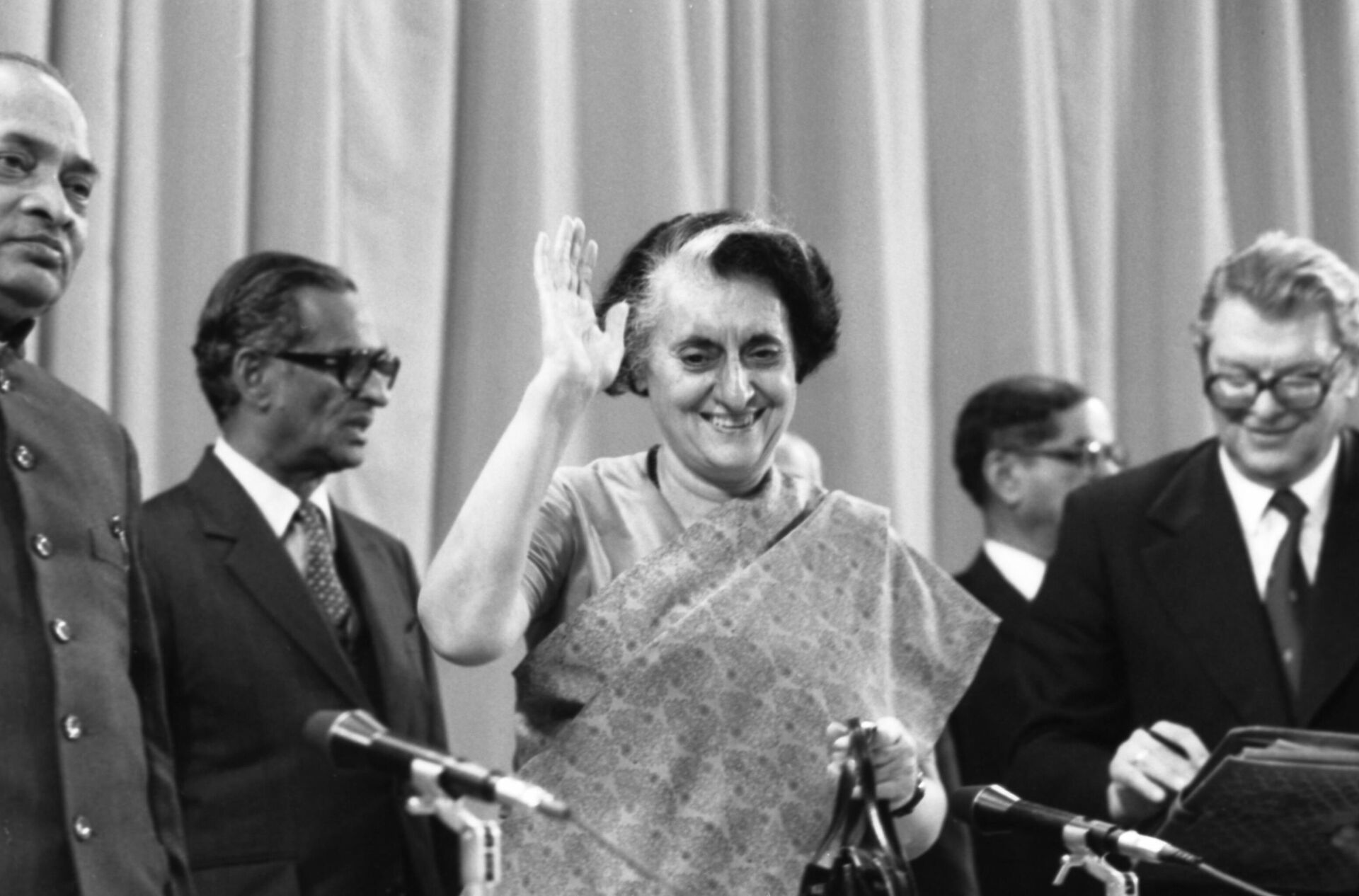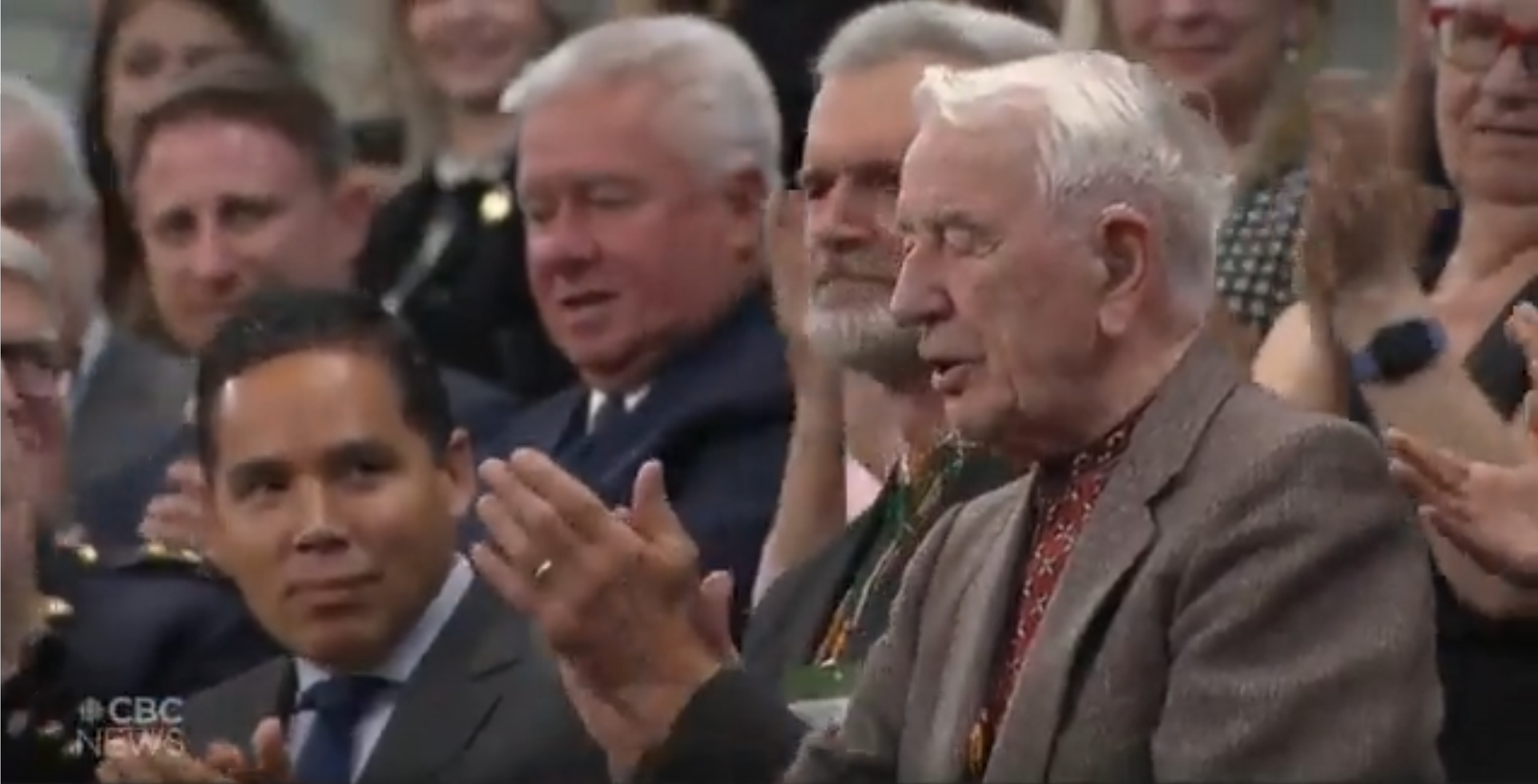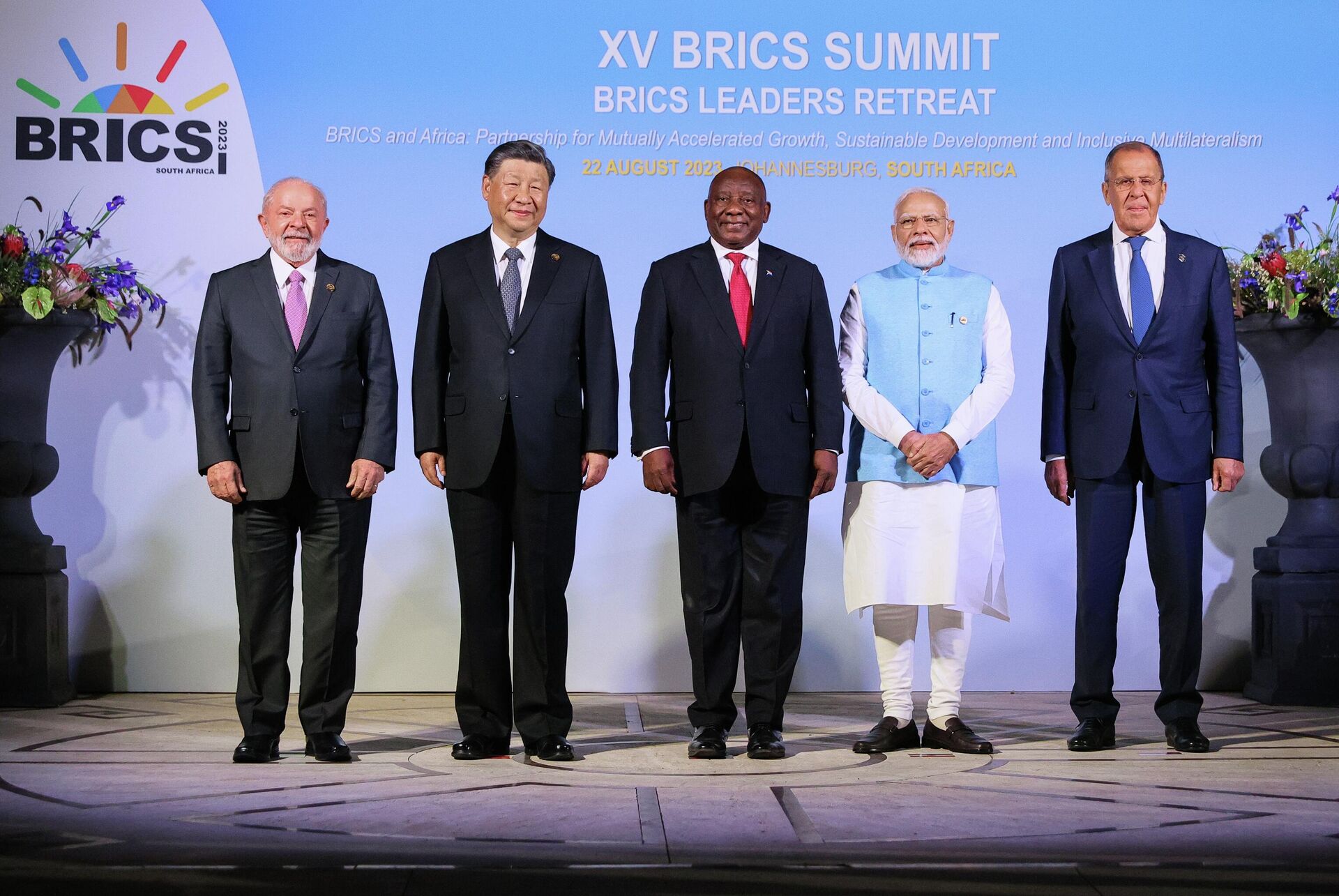https://sputnikglobe.com/20230928/us-canada-seek-to-destabilize-india-through-khalistan-separatist-movement-1113771194.html
US, Canada Seek to ‘Destabilize’ India Through Khalistan Separatist Movement
US, Canada Seek to ‘Destabilize’ India Through Khalistan Separatist Movement
Sputnik International
The Biden administration is fueling the ongoing Indian-Canada diplomatic crisis as part of longstanding effort to undermine New Delhi’s internal stability, Indian geopolitical analyst Abhijit Chavda told Sputnik's New Rules podcast.
2023-09-28T16:08+0000
2023-09-28T16:08+0000
2023-09-28T16:27+0000
us
analysis
americans
joe biden
canada
china
new delhi
nazis
nato
pierre trudeau
https://cdn1.img.sputnikglobe.com/img/07e6/0a/09/1101651979_0:161:3071:1888_1920x0_80_0_0_51caf4184a6d8d4ce3d19a6c3e45ea7d.jpg
Canadian Prime Minister Justin Trudeau last week accused the Indian government of having a hand in the fatal shooting of Hardeep Singh Nijjar, a chief of Khalistan Tiger Force (KTF), banned in India, but provided zero evidence to back up his claim. New Delhi resolutely denied the allegations, condemning Canada for becoming a home to the members of the Khalistan movement, designated as terrorists in India.Abhijit Chavda believes that Canada knowingly provides shelter to the Khalistan separatists who are running a secessionist campaign against India from abroad and motivating Punjab Sikhs to join militant ranks. Why would Ottawa do this?Why Did US and Canada Aid Khalistan Separatist Movement?The Khalistan movement declared Punjab, an Indian state bordering Pakistan, a "Sikh homeland," in 1930, and has since then waged an insurgent movement against Delhi. In the 1970s and 1980s, armed Khalistan insurgents received weapons and training from Pakistan, akin to Afghanistan’s Mujahedeen, and enjoyed Western backing. The secessionist movement was used by the US and its NATO allies to balkanize India, which was at the time a Soviet Union ally, according to Chavda.In the 1980s, when the Indian government started cracking down on Khalistan, many of its members found refuge mostly in five Anglophone countries – the US, the UK, Australia, New Zealand, and Canada, Sputnik's interlocutor explained.Canada Turns Blind Eye to Criminal History of Khalistan and Nazis AlikeIn 1985, the Khalistan militants blew up an Air India Boeing 747 flying from Canada to India; all 329 people on board were killed and many of them were Canadian citizens, Chavda underscored. "But Canada still did not learn its lesson and it's continued supporting these people," he said.Canada appeared to welcome extremists of all stripes as long as they were hostile to the USSR and its allies during the Cold War era. Thus, Canadian military and intelligence agencies also brought thousands of former Nazis into their country. These people were actively encouraged by the Canadian government and given an opportunity to form a powerful ethnic lobby, both in business and politics.Per Chavda, it seems like this Cold War-era policy never ended, given that Nijjar and many other Khalistani extremists have found a safe haven in Canada, and that a former Waffen SS soldier has recently been given a standing ovation from the entire Canadian legislature.Despite Wooing New Delhi, Biden Admin Fears India's Superpower PotentialOne shouldn't be deluded by a pro-Indian shift adopted by the Biden administration, Chavda noted. During the Cold War, then-President Richard Nixon wooed China to pit it against the USSR and India. Now that China is seen as a geopolitical challenge by Washington, the US foreign policy establishment is trying to use India as a tool against China and Russia. But that is not all, as Washington wants to undermine India as well in this great power game, per the Indian analyst."So in the long run, India is a problem for the US. But right now they need India against China. So they have a kind of a balancing strategy. On the one hand, they will support India when it comes to their interests against China, but they will also oppose India in a variety of ways. They will create problems for India. There are problems in India's Far East, the Northeast, Manipur and all that. They supported the Kashmir terrorism insurgency for a very long time. They supported Pakistan against India. The Khalistan movement is there," Chavda continued.There is more to the case of Hardeep Singh Nijjar than meets the eye, the Indian geopolitical analyst stressed. According to him, both Canadian and American intelligence services were well aware that Nijjar was an insurgent leader.According to the US mainstream press, the American intelligence services provided their Canadian counterparts with information that helped Canada "conclude" that India "had been involved". For their part Canadian secret services are said to intercept "smoking gun" communications between Indian diplomats in Canada indicating "involvement in the plot", per officials quoted by the US media. A top US diplomat in Canada confirmed there was "shared intelligence among Five Eyes partners" concerning the matter.However, the timing of the accusations raises further questions. Nijjar was murdered in June and now, after India voted for the expansion of BRICS, de-dollarization and new financial mechanisms alongside Russia, China, Brazil, and South Africa, the Canadian government voiced groundless claims of New Delhi participating in the killing of the Sikh separatist.
https://sputnikglobe.com/20230919/india-canada-hit-pause-on-trade-talks-expel-diplomats-amid-khalistan-spat-1113487152.html
https://sputnikglobe.com/20230911/how-us-could-turn-india-middle-east-europe-economic-corridor-into-destabilizing-tool-1113290474.html
https://sputnikglobe.com/20220922/india-slams-canada-for-allowing-khalistan-referendum-by-sikh-extremists-1101088913.html
canada
china
new delhi
southeast asia
Sputnik International
feedback@sputniknews.com
+74956456601
MIA „Rosiya Segodnya“
2023
News
en_EN
Sputnik International
feedback@sputniknews.com
+74956456601
MIA „Rosiya Segodnya“
Sputnik International
feedback@sputniknews.com
+74956456601
MIA „Rosiya Segodnya“
india, canada, justin trudeau, narendra modi, khalistan separatist movement, khalistan movemet, cold war, ussr, indira gandhi, pierre trudeau, nazi militants, canada is safe haven for nazi militants, canada safe haven khalistan separatism, india-canada tensions, us, biden's indo-pacific strategy, brics, balkanization of india, us spied on indian diplomats, five eyes intelligence, hardeep singh nijjar, killing of hardeep singh nijjar, killing of khalistan terrorist in canada, killing of sikh leader in canada
india, canada, justin trudeau, narendra modi, khalistan separatist movement, khalistan movemet, cold war, ussr, indira gandhi, pierre trudeau, nazi militants, canada is safe haven for nazi militants, canada safe haven khalistan separatism, india-canada tensions, us, biden's indo-pacific strategy, brics, balkanization of india, us spied on indian diplomats, five eyes intelligence, hardeep singh nijjar, killing of hardeep singh nijjar, killing of khalistan terrorist in canada, killing of sikh leader in canada
US, Canada Seek to ‘Destabilize’ India Through Khalistan Separatist Movement
16:08 GMT 28.09.2023 (Updated: 16:27 GMT 28.09.2023) The Biden administration is fueling the ongoing Indian-Canada diplomatic crisis as part of longstanding effort to undermine New Delhi’s internal stability, Indian geopolitical analyst Abhijit Chavda told Sputnik's New Rules podcast.
Canadian Prime Minister
Justin Trudeau last week accused the
Indian government of having a hand in
the fatal shooting of
Hardeep Singh Nijjar, a chief of
Khalistan Tiger Force (KTF), banned in India, but provided zero evidence to back up his claim. New Delhi resolutely denied the allegations,
condemning Canada for becoming a home to the members of the
Khalistan movement,
designated as terrorists in India.
Abhijit Chavda believes that Canada knowingly provides shelter to the Khalistan separatists who are running a secessionist campaign against India from abroad and motivating Punjab Sikhs to join militant ranks. Why would Ottawa do this?
Why Did US and Canada Aid Khalistan Separatist Movement?
"Why did Canada do this? I mean, see, essentially Canada is one of the components of the American empire," Chavda told Sputnik. "The US, because of the Cold War, which happened in the 20th century, has had this history of being very strongly anti-India, and they also have this long-term view of India as India being the next potential China. They don't want another big rival, another big competitor rising up in the next 20 years. So they would like to keep India under control. They would like to keep India off-balanced, destabilized. So that's why I believe the Americans were okay with certain kinds of terrorists being sheltered on the territory of their closest allies. And that's why you have a significant anti-India Khalistan presence in the UK. There is a smaller presence in Australia as well. There are these fake referendums that happen in Australia and some of it in New Zealand as well. But like I said, the largest presence was in Canada."
The Khalistan movement declared Punjab, an Indian state bordering Pakistan, a "Sikh homeland," in 1930, and has since then waged an insurgent movement against Delhi. In the 1970s and 1980s, armed Khalistan insurgents received weapons and training from Pakistan, akin to Afghanistan’s Mujahedeen, and enjoyed Western backing. The secessionist movement was used by the US and its NATO allies to balkanize India, which was at the time a Soviet Union ally, according to Chavda.
In the 1980s, when the Indian government started cracking down on Khalistan, many of its members found refuge mostly in five Anglophone countries – the US, the UK, Australia, New Zealand, and Canada, Sputnik's interlocutor explained.
"So the Canadians took in lots of these Khalistan [members]; essentially the Canadians gave shelter to terrorists and criminals who had wanted in India and India gave Canada lots of evidence that these people are wanted in India," said Chavda. "They have committed crimes in India. But the Canadian government always, you know, turned a blind eye to what happened in 1982. Prime Minister Indira Gandhi visited Canada and she spoke to [then Prime Minister] Pierre Trudeau, the father of Justin [Trudeau], and she requested the Canadian government to hand over some terrorists. And she presented the evidence as to why, why we warned them. But Trudeau refused to do that."
Canada Turns Blind Eye to Criminal History of Khalistan and Nazis Alike
In 1985, the Khalistan militants blew up an Air India Boeing 747 flying from Canada to India; all 329 people on board were killed and many of them were Canadian citizens, Chavda underscored. "But Canada still did not learn its lesson and it's continued supporting these people," he said.
Canada appeared to welcome extremists of all stripes as long as they were hostile to the USSR and its allies during the Cold War era. Thus, Canadian military and intelligence agencies also brought thousands of former Nazis into their country. These people were actively encouraged by the Canadian government and given an opportunity to form a powerful ethnic lobby, both in business and politics.
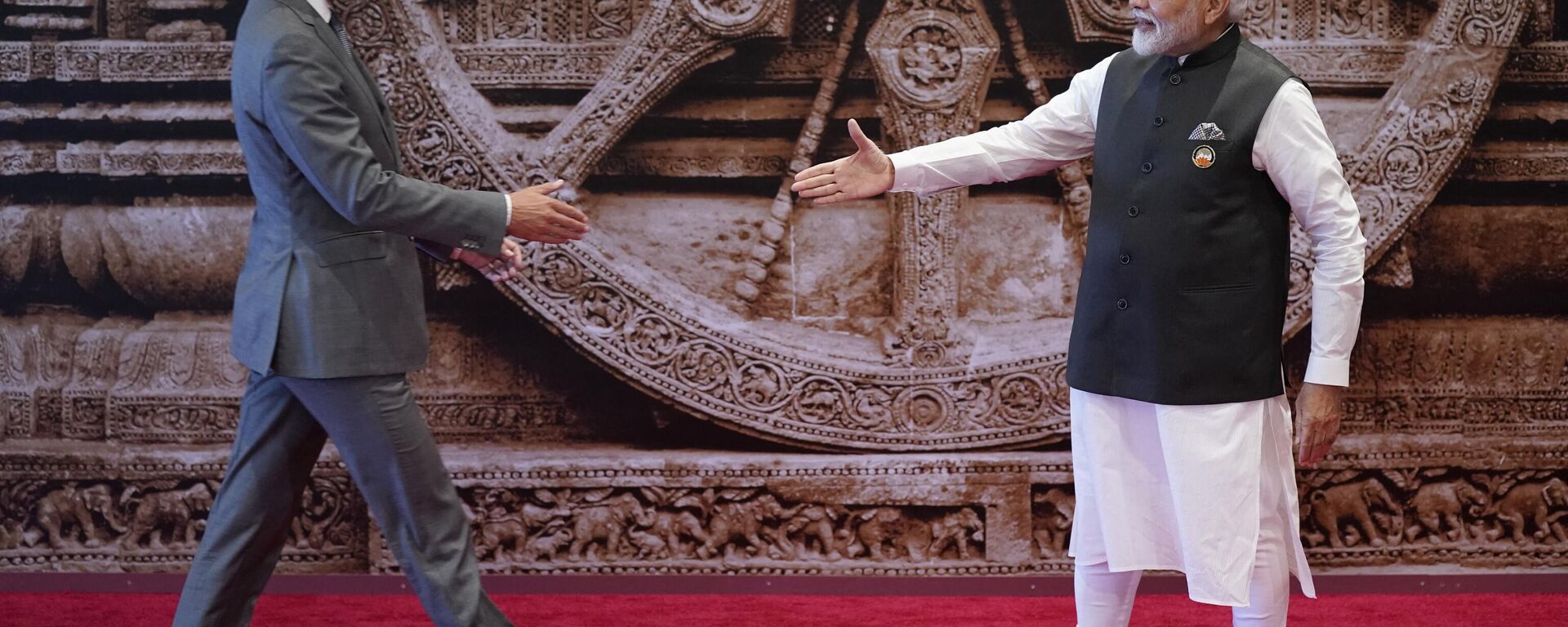
19 September 2023, 11:58 GMT
Per Chavda, it seems like this Cold War-era policy never ended, given that Nijjar and many other Khalistani extremists have found a safe haven in Canada, and that a former Waffen SS soldier has recently been given a standing ovation from the entire Canadian legislature.
"It does seem like history is repeating itself," Chavda said. "We are told that the US fought the Nazis and it's the US that defeated the Nazi Germany in the Second World War. Most people don't know it was the USSR that did most of the fighting and most of the dying. And after the Second World War ended, the Americans actually did not jail all the Nazi top brass. For example, if my memory serves me right, Adolf Heusinger, I think, was one of the top Nazi generals under Adolf Hitler. He eventually became the NATO chief of staff, the top boss of NATO in the 1960s."
"And also […] many of these Nazis, 20,000 or 30,000 of them, were relocated to Canada, where, […], they started new lives. And they became a very powerful ethnic lobby, they have political connections and all. I believe, at least one of the major Canadian politicians in the Trudeau regime is the granddaughter of an actual, literal Nazi, and she has never disavowed what her grandfather did. So that's the deal. I mean, that's something that's kind of been brushed under the carpet. The fact that the US and the West were okay with Nazis, that not all the Nazis were punished for their war crimes."
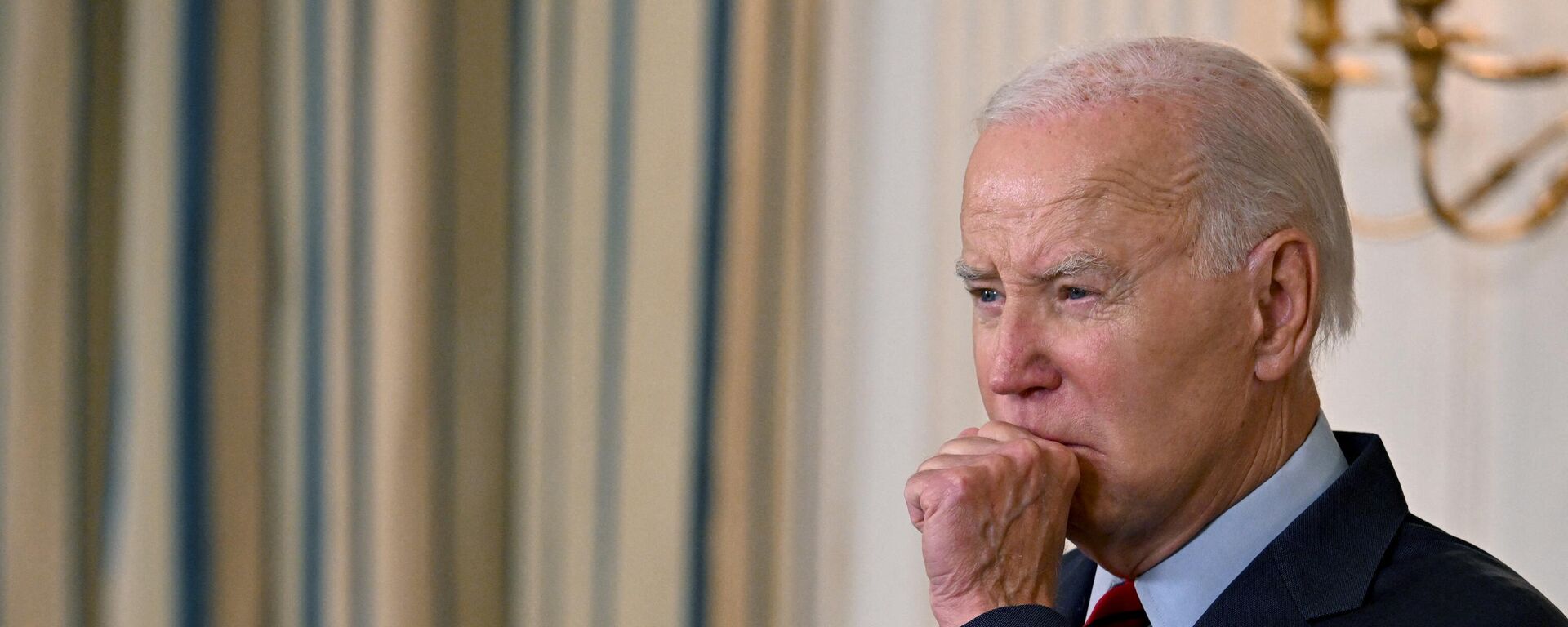
11 September 2023, 18:35 GMT
Despite Wooing New Delhi, Biden Admin Fears India's Superpower Potential
One shouldn't be deluded by a pro-Indian shift adopted by the Biden administration, Chavda noted. During the Cold War, then-President Richard Nixon wooed China to pit it against the USSR and India. Now that China is seen as a geopolitical challenge by Washington, the US foreign policy establishment is trying to use India as a tool against China and Russia. But that is not all, as Washington wants to undermine India as well in this great power game, per the Indian analyst.
"The US wants India to counterbalance China," Chavda said. "But India is also something that they are worried about in the long run. It is the Thucydides trap. They don't want a new peer competitor arising. India has all the characteristics, it takes all the boxes when it comes to being a great power in the long run. It has the demographic dividend, it has a younger population, it has a very dynamic population. It has everything that you can think of. The economy is doing well. It's growing. It's projected to keep growing at a very healthy rate for the next 10-20 years, unless there's a major catastrophe, a war or anything. So in the next 20 years, if India continues on the same path that it is right now, India could become the next China. And this could end up being the 'Indian century' instead of the 'Asian century' or the 'Chinese century.'"
"So in the long run, India is a problem for the US. But right now they need India against China. So they have a kind of a balancing strategy. On the one hand, they will support India when it comes to their interests against China, but they will also oppose India in a variety of ways. They will create problems for India. There are problems in India's Far East, the Northeast, Manipur and all that. They supported the Kashmir terrorism insurgency for a very long time. They supported Pakistan against India. The Khalistan movement is there," Chavda continued.
There is more to the case of Hardeep Singh Nijjar than meets the eye, the Indian geopolitical analyst stressed. According to him, both Canadian and American intelligence services were well aware that Nijjar was an insurgent leader.
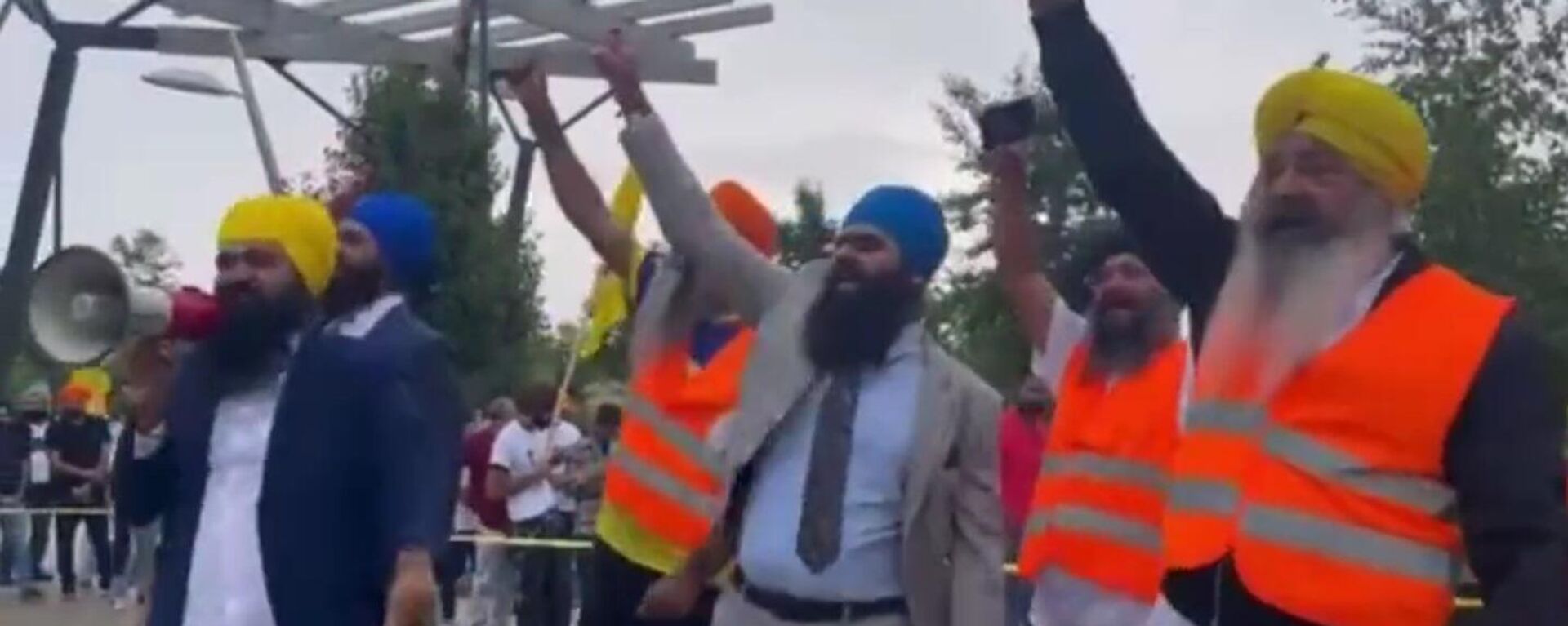
22 September 2022, 14:52 GMT
"This guy was a terrorist. He was wanted for multiple criminal acts in India. He was sheltered by the Canadian government. The Indian government had given specific actionable information and intelligence to the Canadians about him and various other terrorists and criminals. The Canadian government did not do anything about this. The Americans were clearly aware of the fact that this guy is a dangerous man. […] They had put him on a No Fly List. And typically the No Fly List in the US is kind of shared with the Canadians as well so that there's no spill over into the US."
According to the US mainstream press, the American intelligence services provided their Canadian counterparts with information that helped Canada "conclude" that India "had been involved". For their part Canadian secret services are said to intercept "smoking gun" communications between Indian diplomats in Canada indicating "involvement in the plot", per officials quoted by the US media. A top US diplomat in Canada confirmed there was "shared intelligence among Five Eyes partners" concerning the matter.
However, the timing of the accusations raises further questions. Nijjar was murdered in June and now, after India voted for the expansion of BRICS, de-dollarization and new financial mechanisms alongside Russia, China, Brazil, and South Africa, the Canadian government voiced groundless claims of New Delhi participating in the killing of the Sikh separatist.
"I think India's foreign minister, Dr. Jaishankar, has spoken about this on the few occasions that the US seeks to support India, but also works against India in a variety of ways. So the main thing is that India is in itself a long-term great power. Unless something bad happens, something disastrous happens, India is going to be one of the great powers in the next 20 years. So that's the dilemma that the US faces. They don't want this to happen, but they want India's support against China. So India should not become too weak or too strong. It should stay somewhere in between, maybe where it is right now. It's a good place. So that's what the US is doing," Chavda concluded.
